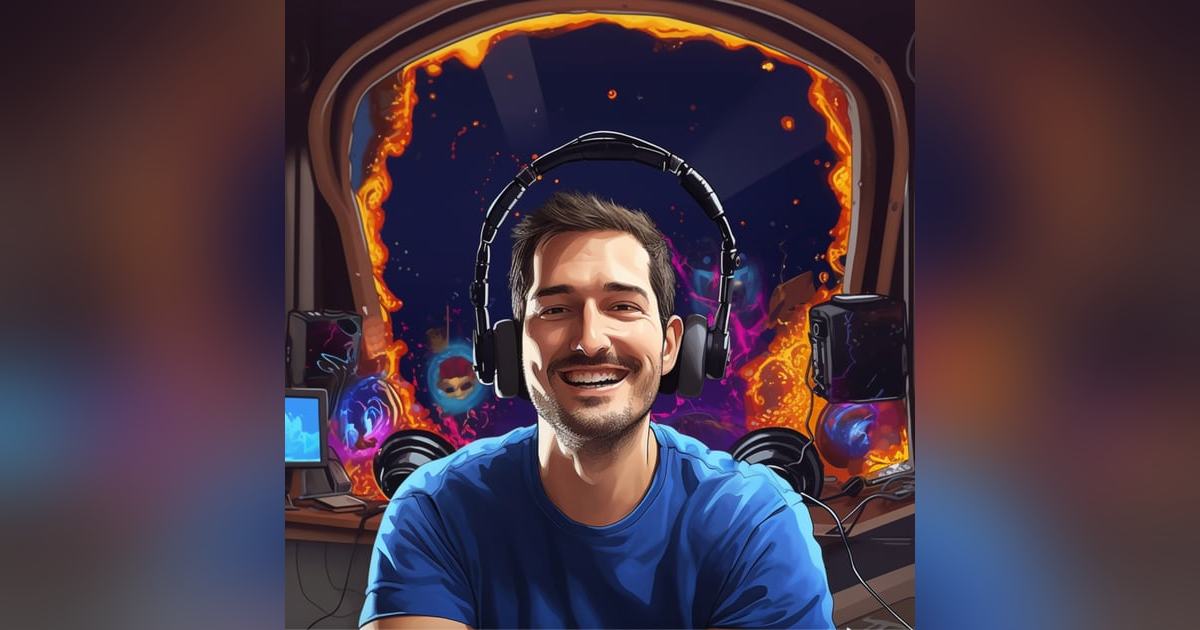#95: The True Value Of Your Time: Side Hustles, Investing, Mindfulness and Empathy for Vets and Entrepreneurs. With Dr Mike Bugg.

Introducing Dr Mike Bugg. Mike graduated from veterinary school in 2008 and started his career as a mixed animal veterinarian. However, he soon realised the importance of having multiple sources of income and saw other veterinarians struggle with retirement. With a passion for personal finance and investing, Mike started investing in real estate in 2012 with the goal of making veterinary work optional. He and his wife continued to build their real estate portfolio while working, eventually allowing Mike to reduce his veterinary hours, and in 2018, Mike stopped working as a clinical vet altogether. During his final years of practice, Mike felt overwhelmed and unhappy, which led him to explore personal development and seek a more fulfilling life. He discovered that many other veterinarians were experiencing the same struggles, which inspired him to create his podcast, The Veterinary Project. Dr Mike had a vision of a community of veterinarians who would share their experiences and collaborate to overcome the difficulties in the profession.
On this episode of The Vet Vault, Dr Mike joins us to discuss the true value of time for veterinarians and we cover topics such as mindfulness, investing and empathy. Mike shares his personal journey in veterinary medicine and real estate investing, including how he developed The Veterinary Project to support the industry. We delve into the financial challenges facing the veterinary industry and Mike offers practical advice on how to change your money mindset to focus on abundance instead of scarcity. Tune in to gain some insightful and different perspectives on personal development, investing, money and more!
Topic list:
05:35 When and why should you change the "do it yourself" mentality?
13:29 Why Mike openly talks about the "dirty" word, money.
15:47 Mike's career journey - from farm to veterinarian to entrepreneur.
25:56 The all too common money mindset in the vet profession.
34:09 Why being aware of your money mindset and having positive money conversations is so important.
35:43 Valuing yourself, growing your skills and being confident in your abilities.
37:00 Your time: everything is a trade-off.
43:38 More than just a vet - Mike's story.
46:57 How Mike became a real estate investor.
51:41 Mike's take on investing.
56:50 Mike's book - You're Gonna Get Peed On!
64:04 The truth about being a vet.
67:55 The emotional relationship between work and money.
70:50 Mike's view on "empathy exhaustion" rather than compassion fatigue.
78:31 Dr Mike's deep dives on mindfulness and more.
82:54 How would Mike's career look different if he had to restart it knowing what he does now?
89:14 Mike's one piece of advice - get intentional about what you truly want from your life.
Join our community of Vet Vault Nerds to lift your clinical game and get your groove back with our up to date easy-to-consume clinical episodes at vvn.supercast.com, visit thevetvault.com for the show notes and resources for this episode, and connect with us through our online Vet Vault Network. for episode highlights, discussions, questions and support.
Join us at Vets on Tour in Wanaka, New Zealand on 13 - 18 August 2023 for great CE, live podcasting and snow... lots of snow!
Dr Mike's Podcast - The Veterinary Project
Dr Mike's Book - You're Gonna Get Peed On!: How Veterinarians Can Keep Their Dream Job from Becoming a Nightmare While Working Less and Earning More






